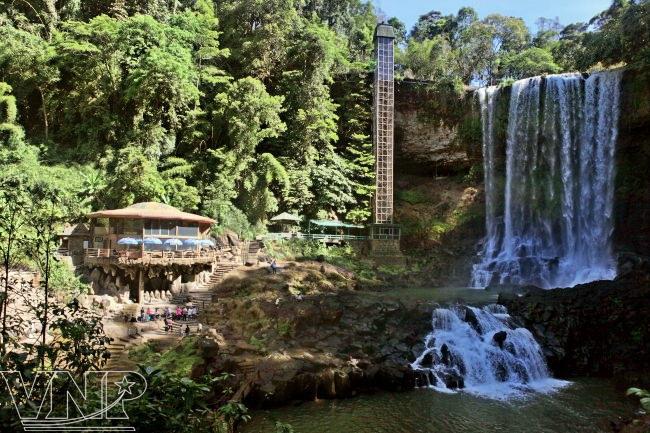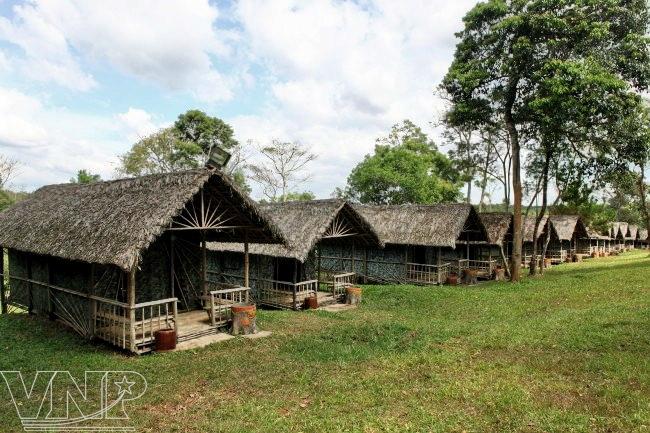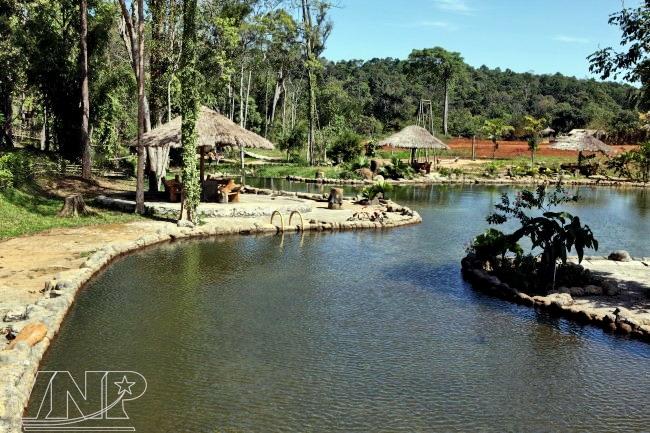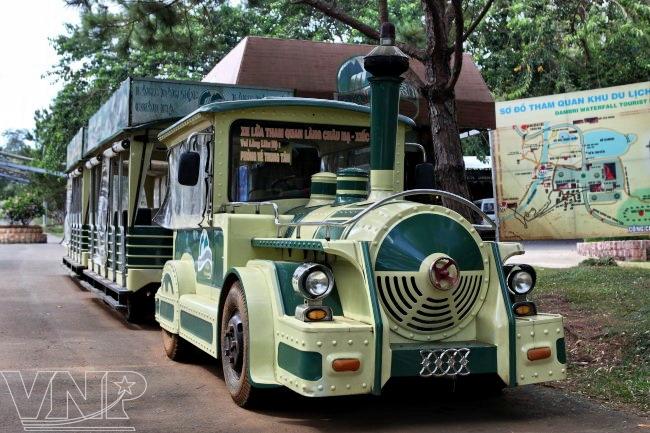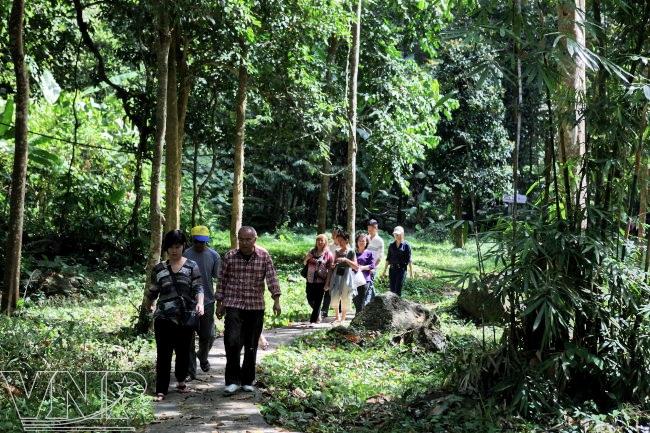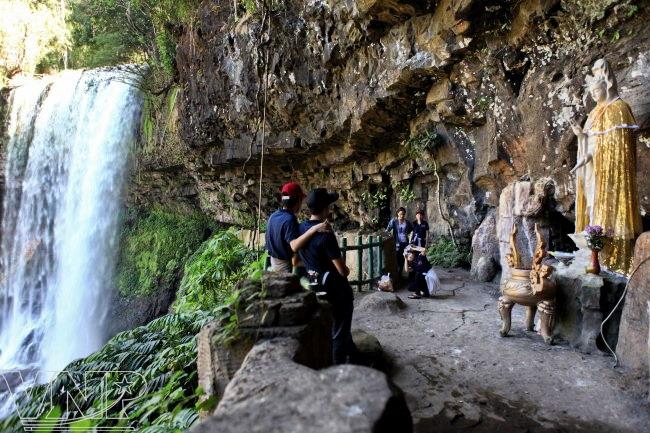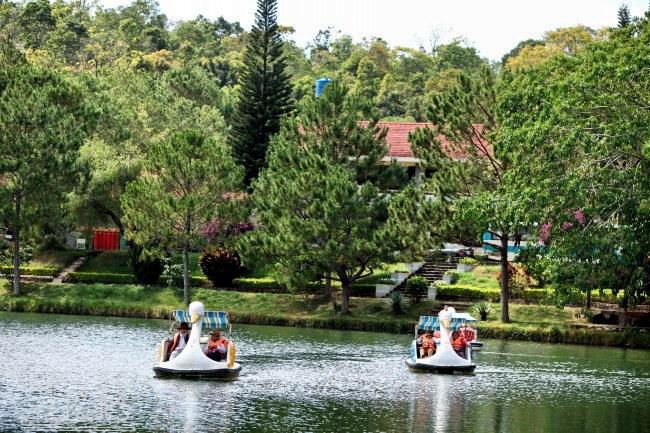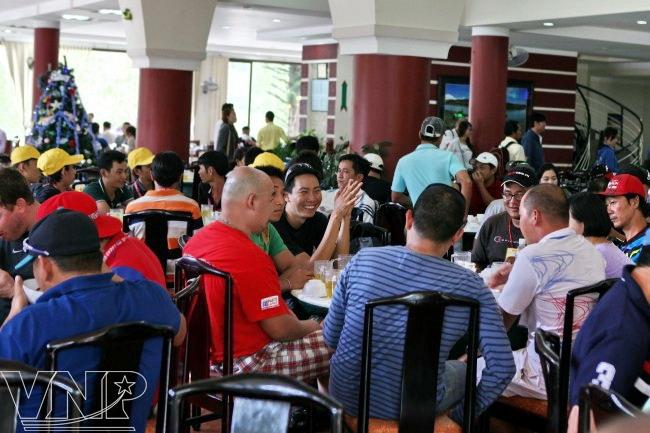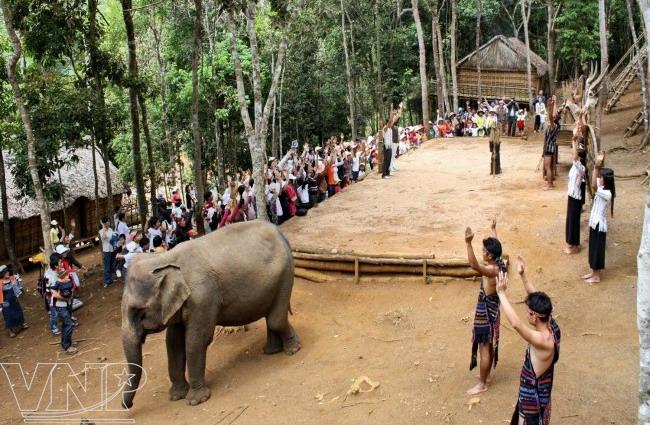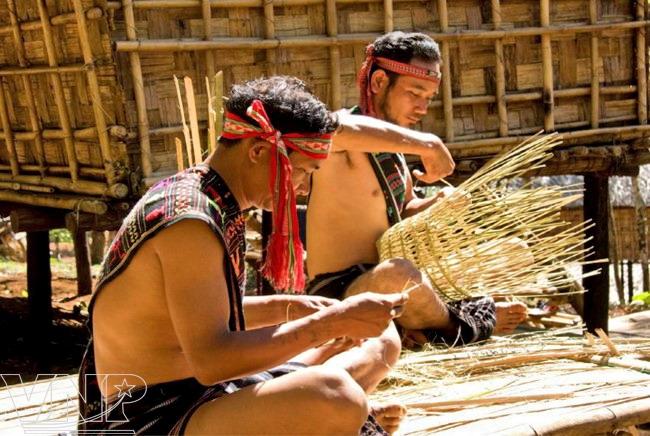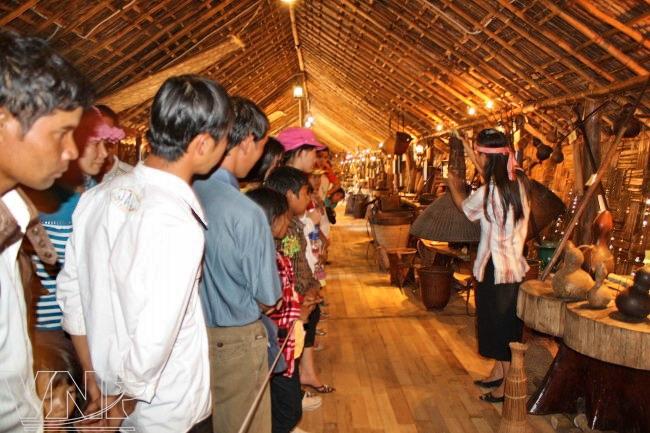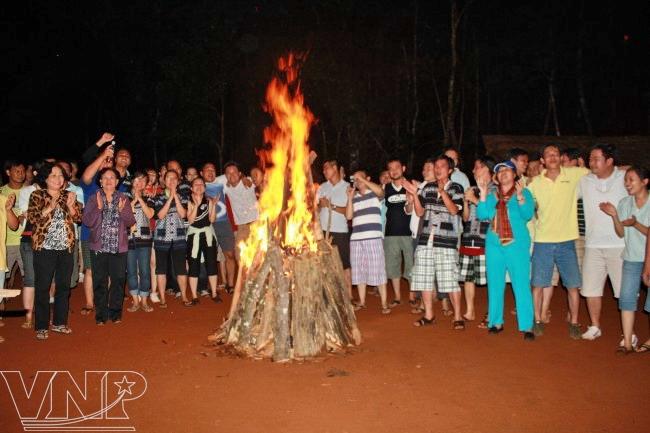
The name of the waterfall, Damri, meaning “the expectation” in the K’ho language, originated from the legendary love story of H’Bi, a K’ho girl and her boyfriend who planned to marry in the season of ripening rice.
Unluckily, their love had an unhappy ending as the girl’s father did not want to marry his daughter to a poor man so he asked the village’s patriarch to force the man to leave the village for a remote area. H’Bi was so sad that she went to the forest – their rendezvous every night and cried with a hope that her boyfriend would come back. However, the man never returned and her tears turned into a great waterfall, impetuously rumbling down round-the-clock.
Damri Waterfall is located in Damri Eco-tourism Area that covers nearly 1,000ha. It is surrounded by a 300ha primitive forest that still preserves its wild beauty with many rare varieties of trees, such as Sao (Hopea odorata), Kien kien (hopea pierei) and Doi (Talauma).
To reach the foot of the waterfall, tourists can walk on a path with mossy stone stairs under the thick canopy of old trees or take the lift at an altitude of 60m where they have a panoramic view of the imposing waterfall. Coming here, tourists will enjoy a spectacular landscape formed by the waterfall and carpets of wild violet and yellow flowers in the surrounding space. Seen from afar, the waterfall looks like a rainbow under the sunlight, charming the magnificent landscape.
Leaving the waterfall, tourists continue following the path to visit the hamlet of the Ma ethnic people to discover their distinctive cultural features, such as the gong dance, stilt-house’s architectural style and techniques of weaving brocade without looms.
Tourists also learn about the culinary art of this ethnic group with delicious dishes, such as pork and glutinous rice cooked in bamboo tubes and Can wine.
Also, the eco-tourism area has many interesting relaxing services, such as going fishing on a large lake or having outdoor activities that surely leave long-lasting impression on tourists.
|
Dambri Water Fall. The peaceful beauty of Dambri Eco-Tourism Area. The camping area at Dambri Eco-tourism Area. Part of Dambri Eco-Tourism Area. At the station of Dambri Eco-Tourism Area. Discovering the beauty of Dambri. The entertainment area thrills tourists with adventure rides. The Goddess of Mercy Statue near Dambri Water Fall. Tourists are interested in swan cycling at Dambri Eco-Tourism Area. Tourists have meals at Dambri Eco-tourism Area. Visiting the hamlet of the Ma ethic people. The Ma ethnic people in Dambri.
Tourists learn about objects and tools of the Ma ethnic group.
A campfire at Dambri eco-tourism area. |
(Source: VNP)

